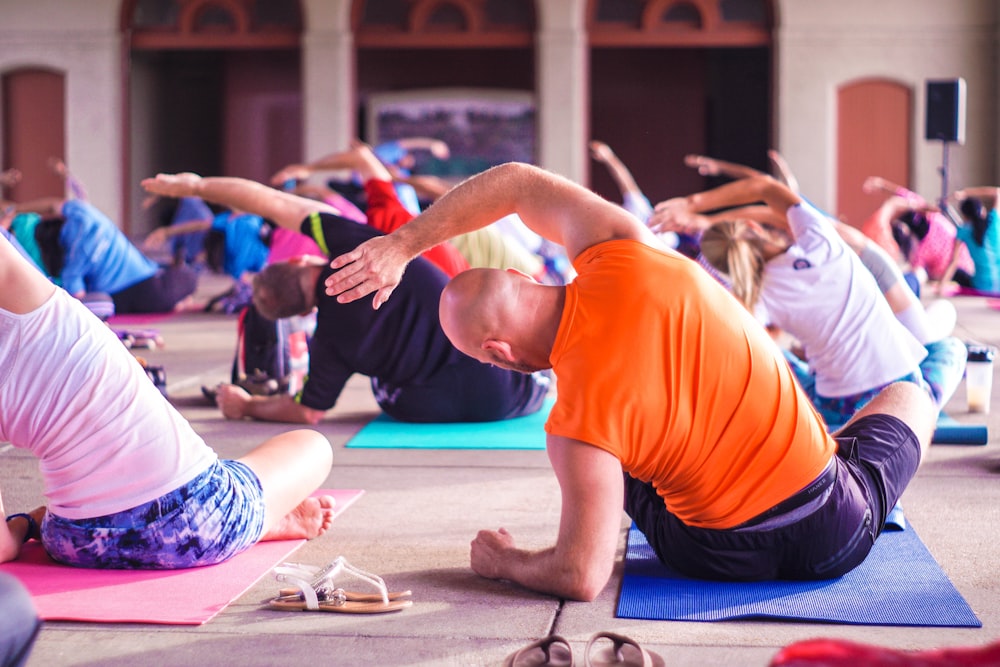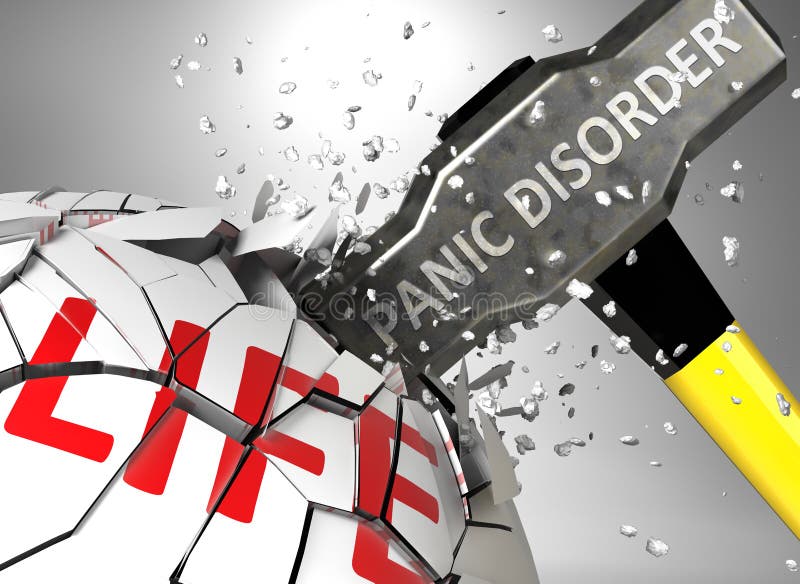Panic Attack: An Overview
A fit of anxiety is a serious rush of dread portrayed by its startling quality and crippling, immobilizing power. Your heart pounds, you can't inhale, and you may feel like you're passing on or going insane. Fits of anxiety frequently strike out of nowhere, with no notice, and now and then with no reasonable trigger. They may even happen when you're loose or snoozing.
A fit of anxiety is an unexpected scene of serious dread that triggers extreme physical responses when there is no genuine risk or obvious reason. Fits of anxiety can be startling. At the point when fits of anxiety happen, you may believe you're losing control, having a cardiovascular failure or in any event, passing on.
Numerous individuals have only a couple of fits of anxiety in the course of their lives, and the issue leaves, maybe when a distressing circumstance closes. Be that as it may, on the off chance that you've had repetitive, unforeseen fits of anxiety and spent significant stretches in steady dread of another assault, you may have a condition called alarm issue.

A fit of anxiety might be a one-time event, albeit numerous individuals experience rehash scenes. Repetitive fits of anxiety are frequently activated by a particular circumstance, for example, crossing an extension or talking out in the open—particularly if that circumstance has caused a fit of anxiety previously. Typically, the frenzy instigating circumstance is one in which you feel jeopardized and unfit to evade, setting off the body's battle or-flight reaction.
You may encounter at least one fits of anxiety, yet be in any case flawlessly glad and sound. Or on the other hand your fits of anxiety may happen as a feature of another turmoil, for example, alarm issue, social fear, or sorrow. Notwithstanding the reason, alarm assaults are treatable. There are methodologies you can use to lessen or kill the indications of frenzy, recapture your certainty, and assume back responsibility for your life.
Panic attack signs and symptoms
The signs and symptoms of a panic attack develop abruptly and usually reach their peak within 10 minutes. They rarely last more than an hour, with most ending within 20 to 30 minutes. Panic attacks can happen anywhere and at any time. You may have one while you’re in a store shopping, walking down the street, driving in your car, or even sitting on the couch at home.

Panic attack symptoms includes
Panic attacks typically begin suddenly, without warning. They can strike at any time — when you're driving a car, at the mall, sound asleep or in the middle of a business meeting. You may have occasional panic attacks, or they may occur frequently.
Panic attacks have many variations, but symptoms usually peak within minutes. You may feel fatigued and worn out after a panic attack subsides.
Panic attacks typically include some of these signs or symptoms:
- Sense of impending doom or danger

- Fear of loss of control or death

- Rapid, pounding heart rate

- Sweating
- Trembling or shaking
- Shortness of breath or tightness in your throat
- Chills
- Hot flashes
- Nausea
- Abdominal cramping
- Chest pain
- Headache
- Dizziness, lightheadedness or faintness
- Numbness or tingling sensation
- Feeling of unreality or detachment
One of the worst things about panic attacks is the intense fear that you'll have another one. You may fear having panic attacks so much that you avoid certain situations where they may occur.
Signs and symptoms of panic disorder
While many people experience just one or two panic attacks without further episodes or complications—and there’s little reason to worry if that’s you—some people go on to develop panic disorder. Panic disorder is characterized by repeated panic attacks, combined with major changes in behavior or persistent anxiety over having further attacks.
You may be suffering from panic disorder if you:
- Experience frequent, unexpected panic attacks that aren’t tied to a specific situation
- Worry a lot about having another panic attack
- Are behaving differently because of the panic attacks, such as avoiding places where you’ve previously panicked
While a single panic attack may only last a few minutes, the effects of the experience can leave a lasting imprint. If you have panic disorder, the recurrent panic attacks take an emotional toll. The memory of the intense fear and terror that you felt during the attacks can negatively impact your self-confidence and cause serious disruption to your everyday life. Eventually, this leads to the following panic disorder symptoms:
Anxiety – Instead of feeling relaxed and like your normal self in between panic attacks, you feel anxious and tense. This anxiety stems from a fear of having future panic attacks. This “fear of fear” is present most of the time, and can be extremely disabling.
You begin to avoid certain situations or environments. This avoidance may be based on the belief that the situation you’re avoiding caused a previous panic attack. Or you may avoid places where escape would be difficult or help would be unavailable if you had a panic attack. Taken to its extreme, phobic avoidance becomes agoraphobia.
Causes:
In spite of the fact that the specific reasons for alarm assaults and frenzy issue are hazy, the propensity to have alarm assaults runs in families. There likewise gives off an impression of being an association with significant life advances, for example, moving on from school and entering the work environment, getting hitched, or having an infant. Serious pressure, for example, the passing of a friend or family member, separation, or occupation misfortune can likewise trigger fits of anxiety.
Fits of anxiety can likewise be brought about by ailments and other physical causes. In case you're experiencing indications of frenzy, it's critical to see a specialist to preclude the accompanying prospects:
Mitral valve prolapse, a minor cardiovascular issue that happens when one of the heart's valves doesn't close effectively
Hyperthyroidism (overactive thyroid organ)
Hypoglycemia (low glucose)
Energizer use (amphetamines, cocaine, caffeine)
Medicine withdrawal
Self Control Tips For Panic Attack
Deep Breathing
While hyperventilating is a side effect of fits of anxiety that can build dread, profound breathing can lessen indications of frenzy during an assault.
In case you're ready to control your breathing, you're more averse to encounter the hyperventilating that can make different side effects — and the fit of anxiety itself — more terrible.
Concentrate on taking full breaths in and out through your mouth, feeling the air gradually fill your chest and tummy and afterward gradually leave them once more. Take in for a tally of four, hold for a second, and afterward inhale out for a tally of four
Close your eyes
Some panic attacks come from triggers that overwhelm you. If you’re in a fast-paced environment with a lot of stimuli, this can feed your panic attack.
To reduce the stimuli, close your eyes during your panic attack. This can block out any extra stimuli and make it easier to focus on your breathing.
Do Exercise
Doing Light Exercise is helpful in controlling panic attacks. Exercise improve our mood. Doing Light exercise like., Walking, Swimming is helpful in controlling panic attacks.
Find out about frenzy and nervousness
Just find out about frenzy can go far towards diminishing your pain. Look into tension, alarm issue, and the battle or-flight reaction experienced during a fit of anxiety. You'll discover that the sensations and sentiments you have when you alarm are ordinary and that you aren't going insane.
Abstain from smoking, liquor, and caffeine.
These would all be able to incite alarm assaults in individuals who are vulnerable. In the event that you need assistance to kick the cigarette propensity, perceive How to Quit Smoking. Likewise, be cautious with prescriptions that contain energizers, for example, diet pills and non-tired cold meds.
Figure out how to control your relaxing.
Hyperventilation welcomes on numerous sensations, (for example, unsteadiness and snugness of the chest) that happen during a fit of anxiety. Profound breathing, then again, can assuage the indications of frenzy. By figuring out how to control your breathing, you can quiet yourself down when you start to feel on edge. What's more, on the off chance that you realize how to control your breathing, you're additionally more averse to make the very impressions that you're anxious about.
Interface eye to eye with loved ones
Side effects of nervousness can turn out to be more awful when you feel detached, so contact individuals who care about you all the time. In the event that you feel that you don't have anybody to go to, investigate approaches to meet new individuals and construct steady kinships.
Get enough tranquil rest
Deficient or low quality rest can exacerbate nervousness, so attempt to get seven to nine hours of tranquil rest a night. In the event that resting soundly is an issue for you, these tips to getting a decent night's rest can help.
How To Help In Panic Attack
Seeing a companion or cherished one enduring a fit of anxiety can be alarming. Their breathing may turn out to be strangely quick and shallow, they could become mixed up or tipsy, tremble, sweat, feel queasy, or believe they're having a coronary failure. Regardless of how nonsensical you think their terrified reaction to a circumstance is, it's critical to recollect that the risk appears to be genuine to your cherished one. Essentially advising them to quiet down or limiting their dread won't help. Be that as it may, by helping your cherished one brave a fit of anxiety, you can assist them with feeling less dreadful of any future assaults.
Remain quiet yourself. Being quiet, understanding, and non-critical will enable your adored one's frenzy to die down faster.
Concentrate your adored one on their relaxing. Locate a peaceful spot for your companion to sit and afterward direct them to take moderate, full breaths for a couple of moments.
Accomplish something physical. Together, raise and lower your arms or stamp your feet. It can assist with consuming off a portion of your adored one's pressure.
Get your companion out of their own head by requesting that they name five things around them or speaking soothingly about a mutual intrigue.
Urge your adored one to look for help. When the fit of anxiety is finished, your adored one may feel humiliated about having an assault before you. Console them and urge them to look for help for their tension.
How Yoga Help In Panic Attack
Regular nervousness alleviation
Accessible audits of a wide scope of yoga rehearses propose they can diminish the effect of misrepresented pressure reactions and might be useful for both nervousness and wretchedness. In this regard, yoga capacities like other self-alleviating methods, for example, contemplation, unwinding, work out, or in any event, associating with companions.
By decreasing apparent pressure and uneasiness, yoga seems to regulate pressure reaction frameworks. This, thus, diminishes physiological excitement — for instance, lessening the pulse, bringing down circulatory strain, and facilitating breath. There is likewise proof that yoga rehearses help increment pulse changeability, a pointer of the body's capacity to react to pressure all the more deftly.

Stress reaction
A little however interesting investigation done at the University of Utah gave some knowledge into the impact of yoga on the pressure reaction by taking a gander at the members' reactions to torment. The specialists noticed that individuals who have an inadequately managed reaction to stretch are likewise increasingly touchy to torment. Their subjects were 12 experienced yoga specialists, 14 individuals with fibromyalgia (a condition numerous scientists consider a pressure related disease that is described by extreme touchiness to agony), and 16 solid volunteers.
At the point when the three gatherings were exposed to pretty much agonizing thumbnail pressure, the members with fibromyalgia — true to form — saw torment at lower pressure levels contrasted and different subjects. Utilitarian MRIs indicated they additionally had the best action in territories of the mind related with the torment reaction. Interestingly, the yoga experts had the most noteworthy agony resilience and least torment related mind movement during the MRI. The investigation underscores the estimation of systems, for example, yoga, that can enable an individual to control their pressure and, in this way, torment reactions.
Advantages of yoga
Albeit numerous types of yoga practice are sheltered, some are strenuous and may not be fitting for everybody. Specifically, old patients or those with versatility issues might need to check first with a clinician before picking yoga as a treatment choice.

Be that as it may, for some, patients managing gloom, nervousness, or stress, yoga might be an engaging method to more readily oversee side effects. To be sure, the logical investigation of yoga exhibits that psychological and physical wellbeing are firmly united, yet are basically identical. The proof is developing that yoga practice is a moderately generally safe, high return way to deal with improving by and large wellbeing.
Hey Friends Here I Am Attaching Link For Top 50 Blogs on Stress, Anxiety, Panic Attacks, Panic Disorder
https://blog.feedspot.com/stress_blogs/










Nice and knowledgeable parts of our life
ReplyDeleteThanks
Thanks for sharing detailed information about these sensitive topics like anxiety and depression.It will be helpful for many people who are going through this.
ReplyDeleteThanks a lot.
Thanks a lot
DeleteNice Info. M your new follower
ReplyDeleteThanks dear
DeleteYou are doing great job. Thank you for helping people
ReplyDeleteThanks a lot
Delete